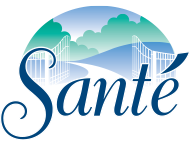Alcohol and depression are closely linked, and each can compound the symptoms of the other. Treatment that addresses multiple mental health concerns, such as depression and alcohol use disorder, is called dual diagnosis treatment. Santé Center for Healing offers dual diagnosis treatment in Texas. Call 866.238.3154 for more information, to verify insurance, or to get started on the path toward healing today.
Are Loneliness and Substance Abuse Connected?
Holidays like Christmas and Valentine’s Day can be difficult for those without significant others or family nearby. The possibility that a substance use disorder has contributed to your loneliness only makes matters worse.
Using alcohol to manage symptoms of depression does bring temporary relief. However, in the long run, substance use worsens mental health symptoms.
While it can produce temporary feelings of happiness and confidence, alcohol is a depressant. It affects brain function in the same way depressants like barbiturates do. The more you drink, the worse your depression symptoms become.
In addition, you may experience confusion, mood swings, and loss of judgment. If you continue using alcohol to manage your mood, you might also develop an alcohol use disorder.
It would not be accurate to say that loneliness causes substance abuse. Many lonely people find positive ways to cope with their situations. However, it is easy to understand how loneliness and substance abuse are connected.
Risk Factors for Alcohol Use and Depression
Every year, many people ease their loneliness on Valentine’s Day with a drink or two. That doesn’t mean they have a mental health disorder. However, there are factors that can increase your risk for developing co-occurring disorders, such as depression and alcohol use disorder, including:
- History of trauma, such as childhood abuse, sexual assault, or combat
- Underlying mental health concerns
- Genetics
- Environmental factors, such as exposure to violence, trauma, or abuse
If you have any of these risk factors and have begun relying on alcohol or other substances to manage your moods, it may be time to speak with a mental health professional. You may be developing or have already developed an addiction disorder.
Symptoms of Depression
Alcohol use can mask the symptoms of a mental health disorder. Watch for these warning signs if you are concerned about your mental health or that of someone you love:
- Slowed thinking or movements
- Feeling sad, hopeless, or empty
- Sleep disturbances, such as sleeping too much or too little
- Anxiety and agitation
- Feelings of guilt or worthlessness
- Changes in appetite
- Irritability and angry outbursts
- Physical aches and pains that are unexplained
- Trouble concentrating
- Thoughts of suicide or frequent thoughts of death
Depression is a serious disorder that requires professional care. Symptoms may be mild or severe, but they generally do not go away without treatment and will worsen over time.
Is Alcohol Use Causing Your Depression?
Alcohol and depression have a symbiotic relationship. Depression can lead to the misuse of alcohol, but alcohol can cause depression.
Drinking activates the brain’s reward system. Regular use begins to interfere with the brain’s ability to monitor mood regulation and other functions. Persistent changes in your brain chemistry can lead to problems like depression and anxiety.
Alcohol can also affect your sleep health, worsen negative thinking patterns, and disrupt important relationships. All of these factors can compound feelings of depression.
Whether you are drinking to ease depression or depressed because of the effects of alcohol, treatment is effective. Treatment for dual diagnosis may include a variety of therapies, including cognitive-behavioral therapy, group therapy, and other evidence-based treatments.
Find Help at Santé Center for Healing
Depression and addiction are both lonely places to live. Treatment provides hope. Through recovery, you can learn how to rebuild relationships and meet your personal goals.
If you are concerned about your own alcohol use or know someone who is struggling with alcohol and depression, contact Santé Center for Healing online or call 866.238.3154 and start feeling better today.







